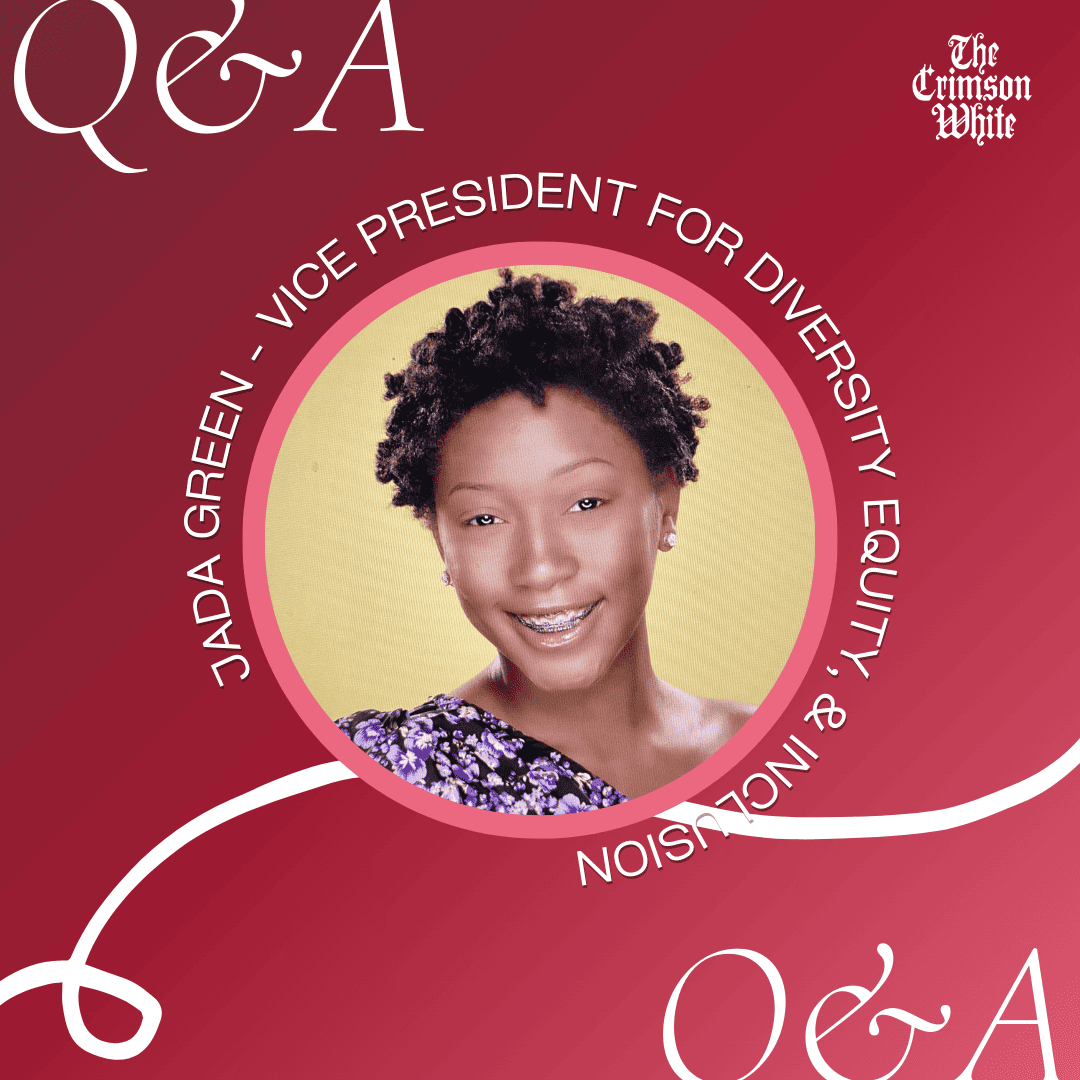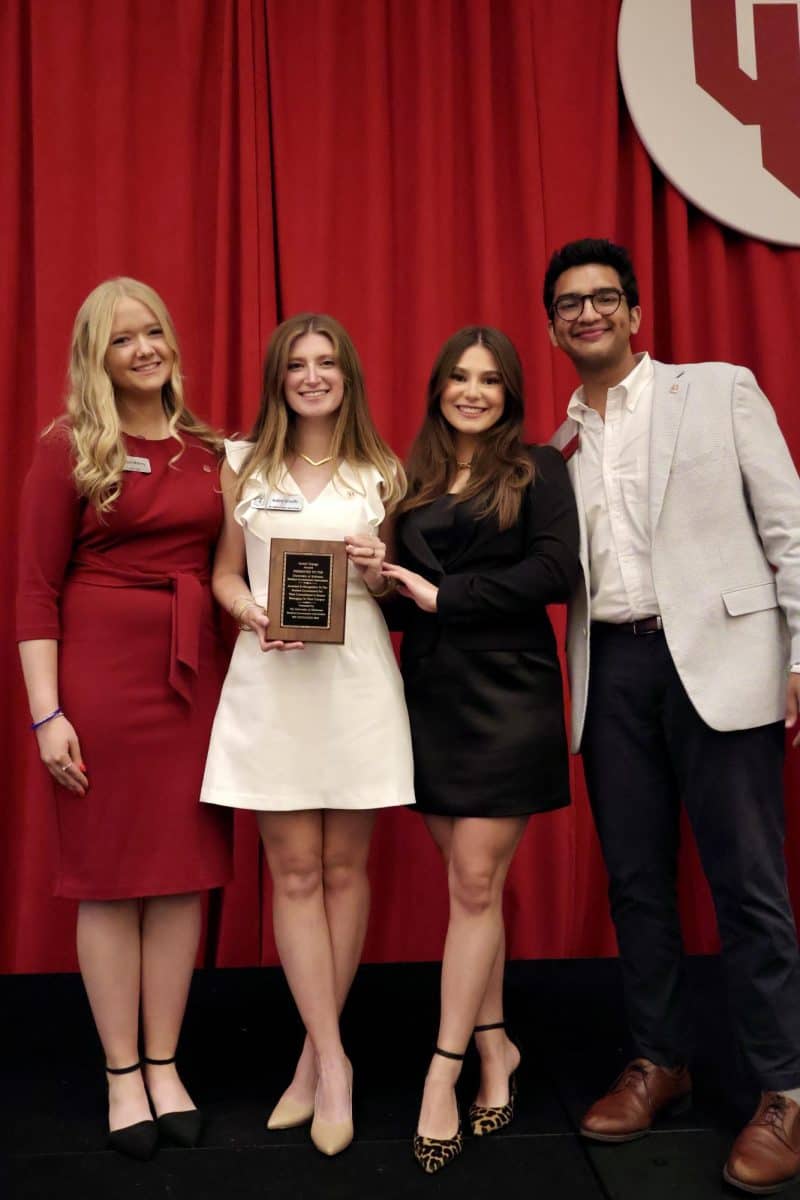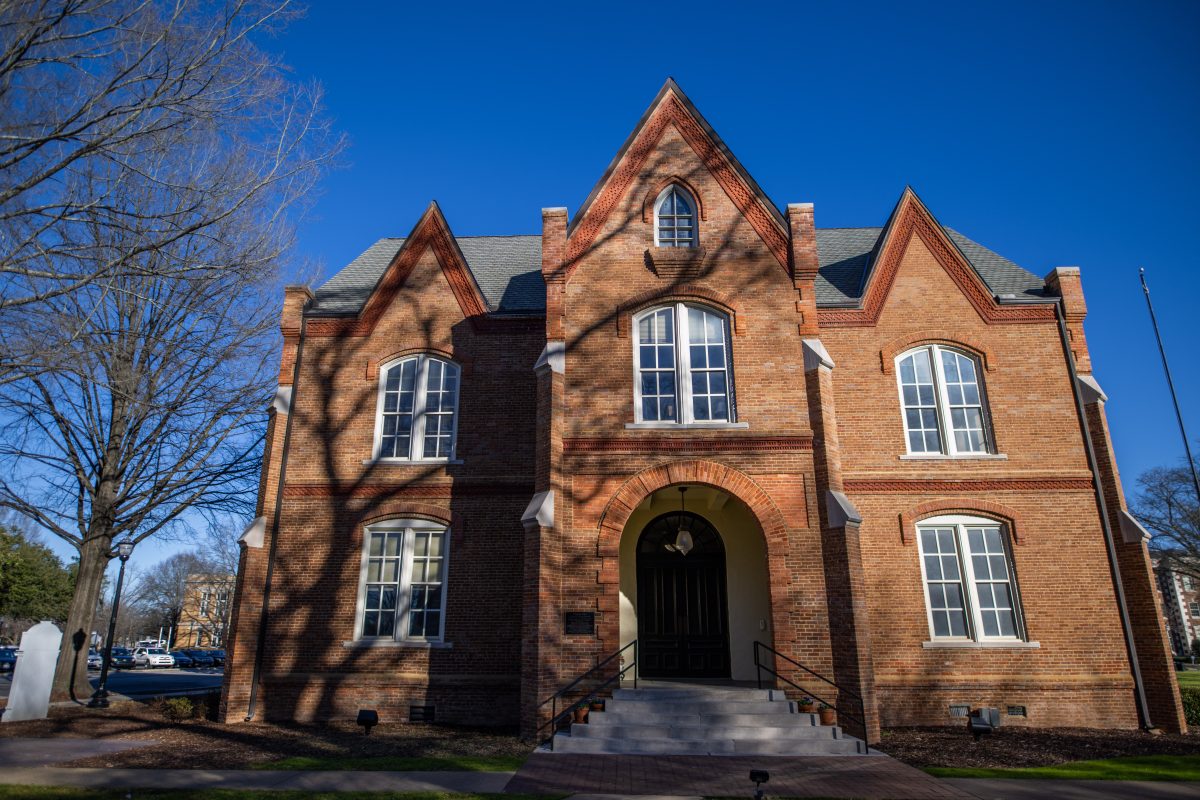Jada Green is a junior majoring in criminal justice.
Q: What made you want to run for this position?
“When I was growing up, my father always talked about leaving a legacy. And I’m like, ‘What is that?’ You know, I’m in single digits. He’s dropping me off at school, like, ‘What are you talking about?’ And so, as I got older, and especially coming here to The University of Alabama, I quickly found a meaning for leaving your legacy, making your mark in this world. And so, it really got me thinking about, ‘What do I want people to see?’ For me, when I am long gone, you know, my children are long gone, ‘What do I want my lasting impact to be on campus?’ Just in life, you know, with people in general. When I got on this campus, I saw ‘SGA, Student Government Association, student government,’ and I’m like, I think that’s how I can make my impact here. I want to be involved with the students. I feel like SGA is really the heart, the backbone of The University of Alabama. So, I figured, let’s start there. Let’s see where it goes.”
Q: What are two initiatives you want to accomplish in this position?
“First, the very minimum: I want to be an ally. I want to be that friendly face in the room. I want to be that one person that, you know, you can recognize, you can talk to if you’re nervous, if you need information. Even if you need a contact for something, I want to be that person. Especially [because as] a freshman, I did SOC when I first got here — Summer on Campus. And so I know what it’s like to kind of be the new one in the room, the youngest in the room. It can be nerve-wracking. So I want to be that person to, you know, reach out, that friendly face. One thing I would love if — I know there’s Get on Board Day — but if there’s another day or maybe an intimate setting where more diverse organizations can get together and really bond. I feel like we are more alike than we are different. And we all have, in a way, the same interest; I mean, we’re all at The University of Alabama, for crying out loud, so that means something. We have one thing in common, if nothing else. So just more collaboration. I mean, we have so many great brains on campus, you know, that are involved in so many things. I mean, during this process, I’ve gotten a chance to talk to people, you know, I haven’t met that have been in close proximity. You know, maybe someone I could have ran into [in] the grocery store with and I would not have known if I wasn’t … going through this process. So, I think there needs to be more collaboration just with everybody, in an intimate setting, some type of event where everyone can just share ideas and just talk about their events and what’s going on currently.”
Q: What is the biggest problem you see on campus?
“There’s always room for improvement, so there’s always a little wiggle room. I would love to see just more diversity. Now, The University of Alabama does a great job with the University. But making it comfortable for everyone — you know, there’s always going to be someone that that tries to break the glass ceiling, you know, but what about the ones that may be easily deterred? Or, you know, afraid, or maybe have other things that are holding them back such as family dynamics, mental health, even sexuality, that they’re having trouble with and making them feel uncomfortable in those type of group settings. So just putting emphasis on inclusivity.”
Q: How do you foster a culture of diversity, equity and inclusion on campus?
“By talking to students. I’m a student as well. I feel like I can fit the role because I’ve been there, I get it. And just talking to students; it starts with a conversation. You can either have a war or peace, you know, starting with a conversation. So, starting there, talking to students, walking into the Student Center, you know, sending out emails, going to different organization events. Like, ‘Hey, what do you think can be better? What can we do? What would you like to see?’ They’re the heartbeat of the University, so starting with them.”
Q: What is your reaction to the University cutting its National Recognition Scholarships? Does DEI here face unique challenges going forward?
“I feel like that’s very complex because on the one hand with affirmative action, for example, my father, I mean, numerous people in my family got through school based on a lot of those scholarships. You know, that was a great opportunity for them coming from rural towns, you know, being men of color or women of color and then not having the funds for that. So that really stamped my path, that brought me to the path where I am now. But I do understand equity, though. So, it being fair. So, I can understand and see how other people may not see that as fair. But then again, given the history of, you know, all people of color, all sexualities, there was a point in time where they weren’t permitted or allowed on their campuses or facilities. So again, it starts with a conversation. I feel like there’s more work that needs to be done. I feel like there is a bit more that we need to do, more we need to unpack with that. There isn’t going to be a one-size-fits-all answer for that.”
Q: What is one last thing you want voters to know about you?
“I am one of you. I pay my tuition like everyone else. I go to class every day. If I can just touch one person, then I can be content. I want to reach people. I want to help the underdog. I want to talk to the one that’s always been on top. I want to leave a legacy here. You know, this is coming from a girl from a military family that’s moved everywhere. Many times, I was the black sheep, so I get it. I understand and I want to assist; I want to aid.”







